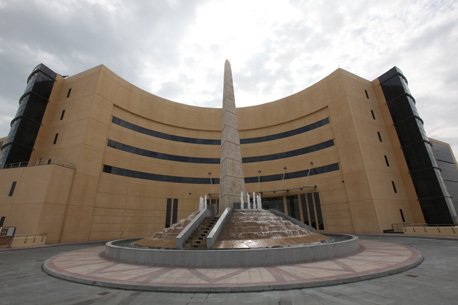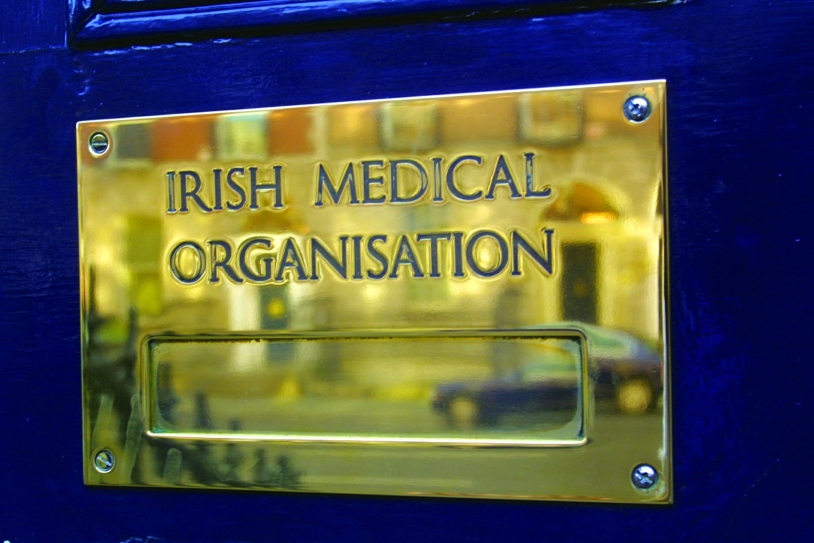Today a complaint has been filed with four United Nations Special Rapporteurs detailing allegations of human rights abuses relating to medical facilities and personnel in Bahrain. Some of the medical facilities are used for training by RCSI Bahrain.
Details of the complaint have been submitted to the Medical Council ahead of its planned accreditation of the medical programme at RCSI Bahrain, which was postponed earlier this year due to Covid-19. The programme was previously accredited by the Medical Council in 2014, but there was significant opposition to this move voiced by some Council members.
Since a crackdown by state authorities on the pro-reform movement escalated in 2011, the medical facilities, which are accredited by European, Australian and North American standard-setting bodies, have been linked with alleged torture, serious breaches of medical ethics, the mistreatment of prisoners and neutrality, and the targeting of injured protesters and treating medics.
The complaint filed by Global Legal Action Network (GLAN), in partnership with legal advocacy organisation REDRESS, the Bahrain Institute for Rights and Democracy (BIRD) and Americans for Human Rights and Democracy in Bahrain (AHRDB), includes witness testimonies from three individuals who describe how they were affected by abuses taking place in Bahrain’s medical facilities. According to the organisations, the complaint has implications for businesses and transnational education programmes connected to these sites.
The organisations say the testimonies are further evidence of the “militarisation” of Bahrain’s hospitals which has “consistently undermined” the principles of non-discrimination, medical ethics and neutrality.
Testimony 1, a Bahraini doctor who, while working at a major hospital, describes witnessing police interference in medical treatment, the interrogating of injured protesters, and mistreatment of political detainees. The witness also describes being forced to discontinue training at the Bahrain Defence Forces Hospital due to discrimination on the basis of their Shia religion.
After graduating they describe witnessing police interference in treatment, including attending patient examinations, interrogating patients, and instructing the withholding of treatment, mistreatment of political detainees and injured protestors, and staff reporting suspected protestors to the authorities. The doctor was later “arrested, tortured and imprisoned for treating injured protesters outside of the hospital system. In detention the doctor was denied medical treatment for injuries resulting from their torture.” The witness has now applied for asylum outside of Bahrain.
Testimony 2 is that of a Bahraini human rights defender who states that she was arrested, detained and tortured by Bahraini authorities. Following her release, she was too afraid to approach public hospitals for fear of being reported and rearrested. She was later imprisoned, and suffered neglect, mistreatment and abuse in hospital when brought for treatment for her injuries. During hospital visits she was shackled, denied medication, monitored by male police officers during examinations, and insulted for her political activities. Following her release, she was too afraid to approach public hospitals for fear of being reported and rearrested.
Testimony 3 is that of a nurse who states that he was arrested, tortured and prosecuted by the Bahraini authorities for protesting against government interference in medical treatment of protestors. He treated injured protestors who were either blocked from accessing hospitals or too afraid to approach them because the government had ordered hospital staff to report patients with protest-related injuries. Convicted of a litany of “unfounded charges” and tortured in detention, he states that he was mistreated in hospital due to his status as a political detainee and frequently denied access to medical treatment.
The alleged unlawful interference of the military at Bahraini hospitals has formed the subject of several previous communications from UN Special Procedures to the Government of Bahrain since anti-government protests first broke out in 2011, in addition to further communications that address alleged inadequate, or the denial of, medical treatment to injured protestors and political detainees.
GLAN, REDRESS, BIRD and ADHRB are calling on the Special Rapporteurs to issue a communication to the Government of Bahrain and request a response to the more recent allegations set out in the complaint.
According to the organisations, the subject matter of the complaint is expected to be a direct concern to certification bodies in third countries who evaluate and monitor medical and education standards in these medical facilities including the Irish Medical Council; The Australian Accreditation Council; Accreditation Canada; American Heart Association; Surgical Review Corporation; Joint Commission International; and The European Accreditation Council for Bariatric Surgery.
Previously, GLAN and its partners have urged the Irish Medical Council to revisit its accreditation of RCSI Bahrain, which conducts its teaching activities in hospitals included in the complaint to the Special Rapporteurs.
In September 2019, GLAN, REDRESS and BIRD wrote to the Irish Medical Council ahead of the Council’s intended reaccreditation visit to RCSI Bahrain which was due to take place in March 2020, calling on the Council to confirm that any human rights abuses occurring in the training hospitals and clinics used by RCSI Bahrain are relevant to its assessment, in particular in light of EU law requiring that in order to recognise overseas medical degrees, degree holders must have received “suitable clinical experience in hospitals under appropriate supervision”. The Council’s assessment visit was postponed due to Covid travel restrictions and remains pending.
Ms Siobhan Allen, GLAN Legal Officer, said: “Through Bahrain’s militarisation of hospitals and apparent interference by security forces in medical activities, authorities are using hospitals to target patients and doctors alike. Pro-democracy protestors and human rights defenders are avoiding public hospitals, viewing them as the ‘eyes and ears’ of the state in enforcing control. In sharing first-hand testimonies with the Special Rapporteurs we hope they communicate with the government of Bahrain in an effort to end these breaches of human rights standards and medical ethics.”
Dr Gearóid Ó Cuinn, GLAN’s Director, stated: “Bahrain has consistently used medical facilities to repress those who are calling for reform. This should be of concern to businesses and standard setting bodies that interact with these facilities, they too have a responsibility to respect human rights standards and not ignore human rights violations.”
The RCSI has frequently maintained that it is employing ‘soft power’ in Bahrain and seeking to exert influence behind-the-scenes in regard to human rights.













Leave a Reply
You must be logged in to post a comment.